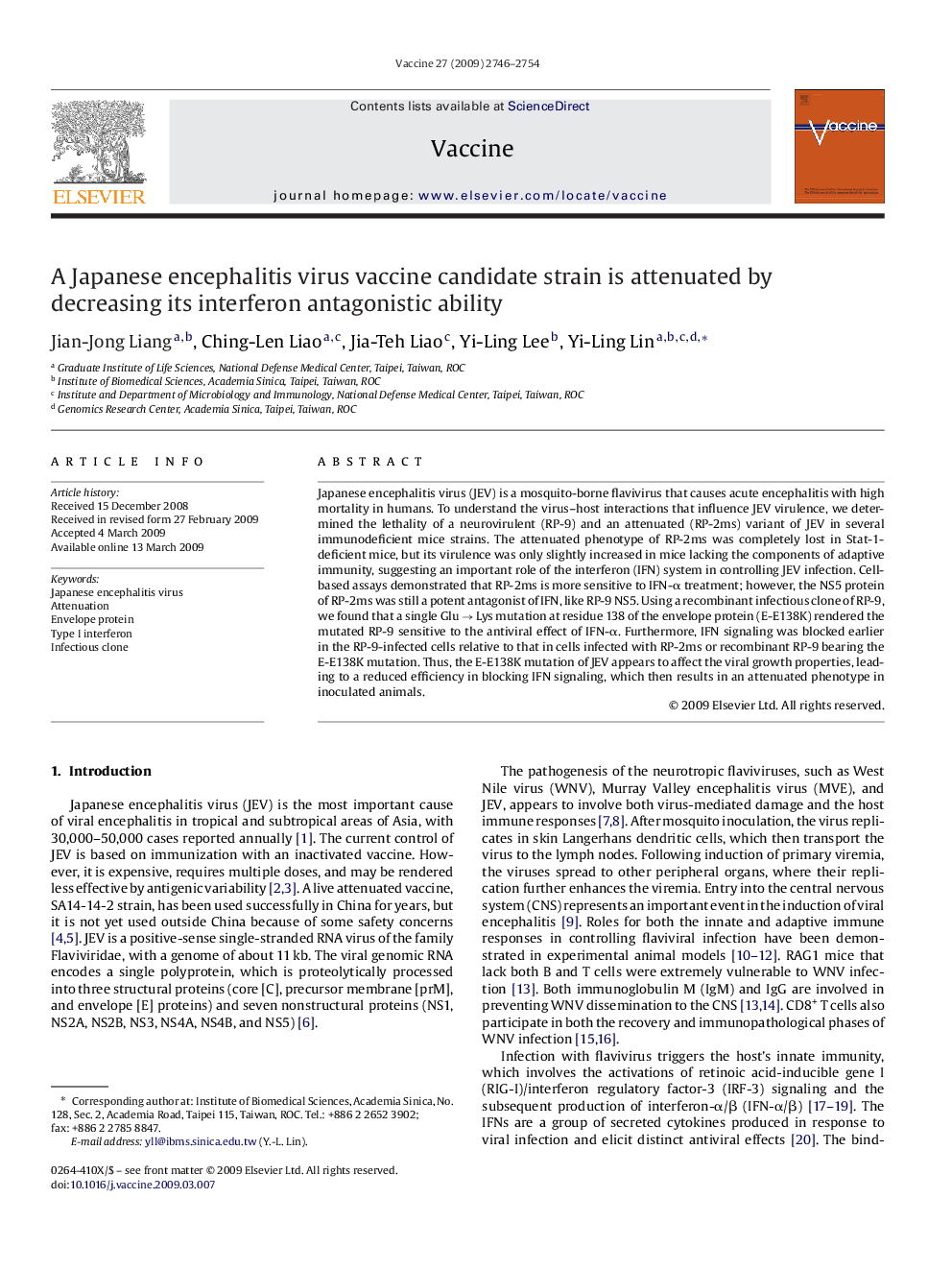| Article ID | Journal | Published Year | Pages | File Type |
|---|---|---|---|---|
| 2405632 | Vaccine | 2009 | 9 Pages |
Japanese encephalitis virus (JEV) is a mosquito-borne flavivirus that causes acute encephalitis with high mortality in humans. To understand the virus–host interactions that influence JEV virulence, we determined the lethality of a neurovirulent (RP-9) and an attenuated (RP-2ms) variant of JEV in several immunodeficient mice strains. The attenuated phenotype of RP-2ms was completely lost in Stat-1-deficient mice, but its virulence was only slightly increased in mice lacking the components of adaptive immunity, suggesting an important role of the interferon (IFN) system in controlling JEV infection. Cell-based assays demonstrated that RP-2ms is more sensitive to IFN-α treatment; however, the NS5 protein of RP-2ms was still a potent antagonist of IFN, like RP-9 NS5. Using a recombinant infectious clone of RP-9, we found that a single Glu → Lys mutation at residue 138 of the envelope protein (E-E138K) rendered the mutated RP-9 sensitive to the antiviral effect of IFN-α. Furthermore, IFN signaling was blocked earlier in the RP-9-infected cells relative to that in cells infected with RP-2ms or recombinant RP-9 bearing the E-E138K mutation. Thus, the E-E138K mutation of JEV appears to affect the viral growth properties, leading to a reduced efficiency in blocking IFN signaling, which then results in an attenuated phenotype in inoculated animals.
